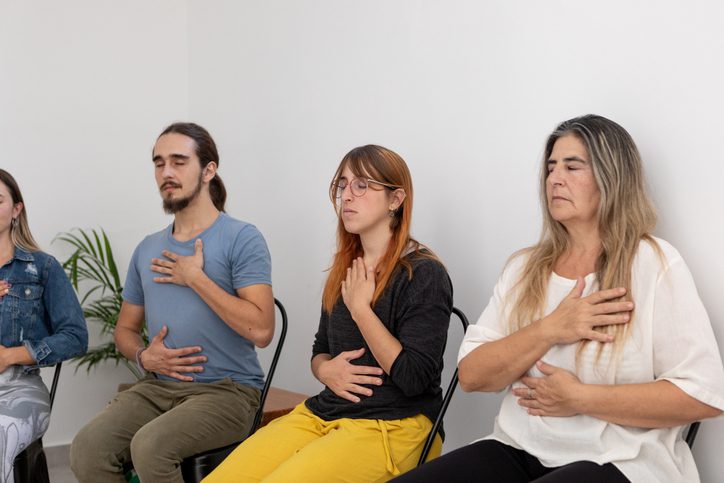Exposure therapy sounds scary. To think you may have to relive what you have already gone through to heal doesn’t seem to make sense. But exposure therapy is much gentler than the name suggests. It is a safe and effective tool designed to help people move beyond trauma, substance use disorder (SUD), and anxiety.
What Is Exposure Therapy?
Exposure therapy is a type of talk therapy that centers around processing memories of traumatic events. It helps reduce the stress and intense anxiety you feel when you see, hear, or think about those experiences.
By reducing your stress response to a specific trigger, you can better manage it, making it far less likely to cause you additional pain and suffering. In a safe environment, you’ll talk with your therapist about your experiences with the goal of changing the way your body responds to them.
Exposure therapy helps you stop feeling controlled, impacted, and even terrorized by what happened to you. It can help you overcome anxiety, post-traumatic stress disorder, substance use disorder, and other co-occurring disorders.
Various forms of exposure therapy each offer a slightly different approach to the process. Examples include:
- Imaginal exposure therapy, which is the most common form used at The Ranch at Dove Tree and involves vividly imagining the situation, thing, or activity you fear
- In vivo exposure therapy (which means, in real life), which involves directly experiencing the fear (this is not as commonly used for SUD or PTSD)
- Interoceptive exposure therapy, which triggers the physical symptoms of intense pain or fear, like tremors or a pounding heart, and allows you to get comfortable with them
What to Expect from Exposure Therapy
Exposure therapy helps you to process and move through the traumatic experiences you had. For Veterans with SUD, first responders facing intense stress, or others who have trauma that impacts their thoughts or behaviors, exposure therapy can be highly beneficial.
During this therapy, you can expect the following:
- Your therapist will get to know you and touch on some of the experiences you’ve had that are causing you pain.
- You’ll learn a breathing technique that helps you to work through intense anxiety.
- You’ll make a list of all of the ways this trauma has impacted you. For example, you’ll write down locations you no longer visit or activities you no longer do because of the trauma.
During your sessions, you’ll work through each of the traumas gradually. You’ll be able to talk about what occurred, why you feel the way you do, and how it is impacting your life. As you confront these details, you will notice they stop impacting you as much. Exposure therapy enables your brain to do what it did not do before: process the traumatic event properly. In doing so, you are less likely to feel the same anxiety or have intrusive thoughts.
Does Exposure Therapy Really Work?
Exposure therapy is one of the most effective strategies for dealing with trauma, especially in those experiencing post-traumatic stress disorder. It works because it supports your brain’s natural ability to heal from the damage it has sustained.
For those suffering from substance use disorder, exposure therapy can help reveal the underlying factors that drive the addiction. As these factors are addressed, the desire to use substances will lessen. Clients learn that they no longer need to escape or numb the pain if they have the tools to manage it in a healthy way.
Learn More About Exposure Therapy and Trauma Treatment Now
When you reach out to The Ranch at Dove Tree, you gain the tools and resources you need to move past your SUD and trauma. Our residential treatment programs are readily available to support and guide you. We encourage you to contact us now to learn more about the ways we can support you throughout your recovery. Our drug and alcohol treatment center in Lubbock, TX, is prepared to support your recovery.






